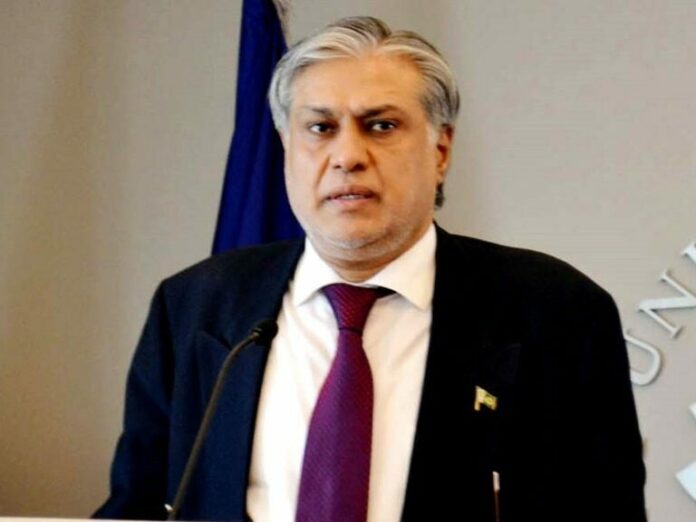ISLAMABAD: As talks between the federal government and the International Monetary Fund (IMF) entered final and decisive stages in the late hours on Thursday, finance minister Ishaq Dar has said good news is on the offing.
And of all the places for this reassurance to have come, it was a road safety conference for parliamentarians in Islamabad. The finance minister was supposed to speak about the plans that the government has for the National Highway Authority (NHA) and about road safety but the tension in the conference hall was palpable — and Dar had to speak about the elephant in the room.
“Everything is going alright,” he said in response to a question on how the discussions with the visiting IMF delegation were going. “The final round is going on right now. I meet them (IMF team) every day and will today as well. “It is expected matters will be settled today,” Dar said. “We will give you the news very soon.”
Things have been tense in the country over the past few weeks with reserves falling to dangerous levels as the government desperately fights off sovereign default. While the IMF program had been on track a few months ago, things have taken dramatic turns since Dar assumed the chiefdom of Q-block and entered a Mexican Standoff with the fund.
On the same day, Pakistan’s foreign exchange reserves held by the central bank decreased by $170 million to $2.9 billion. A successful outcome with the IMF would also help to release money from other platforms that are looking for a greenlight from the lender. The SBP handout issued today said that the decrease was due to “external debt payments”. Meanwhile, net foreign reserves held by commercial banks stood at $5.6bn, bringing the country’s total liquid foreign reserves to $8.5bn. Arif Habib Ltd calculated that reserves were at their lowest since February 2014 and cover a little more than two weeks of imports.
The total liquid foreign reserves left with the country, including the net reserves with the banks now stand at $8.54 billion. Taking into account the controlled imports for the last two months, and a landslide depreciation of the Rupee in the last 15 days, Pakistan’s current import cover now stands at close to 2 weeks of imports.
For the last one month, each week relays a new figure for the lowest amount of reserve level that the SBP forex reserves have touched, in the last 8 years. However, at $2.92 billion, Pakistan no longer has the room to slide lower. On 7th February 2014, Pakistan’s foreign reserves were at $2.84 billion, which is the only time Pakistan’s reserves were below the current level.
It is also important to note that with the current value of the greenbacks, both against the PKR and by itself, makes the current level of reserves, the lowest ever in at least the last 2 decades, in real terms. Last week, the dollar dropped a whopping $592 million, bringing the SBP reserves to $3.09 billion.
Briefly talking to the media after ‘Road Safety Conference for Parliamentarians, he said that things are going on the right track and I am hopeful that negotiations will be completed today. Earlier, addressing the audience at the conference, the pressure on road infrastructure is increasing because other means of transport are relatively inefficient. Hence, ensuring effective road safety measures are essential for socio-economic development.
The $7 billion bailout package from the IMF that hangs in the balance has been a source of great anxiety for the entire nation. Due to low defaults, banks have not been extending lines of credit even for vital imports leading to large lines at petrol stations in the Punjab region where petrol pumps have been hoarding the commodity. At the same time, power breakdowns, gas load shedding, and a sharp increase in the price of essential medicines have all been seen as early signs of what might happen if the IMF program is not put back on track.





Keep working for the future.